Psoriasis is a chronic immune-related condition that causes thick, red, scaly patches on the skin. With the right treatment plan, flare-ups can be controlled, and symptoms significantly improved.
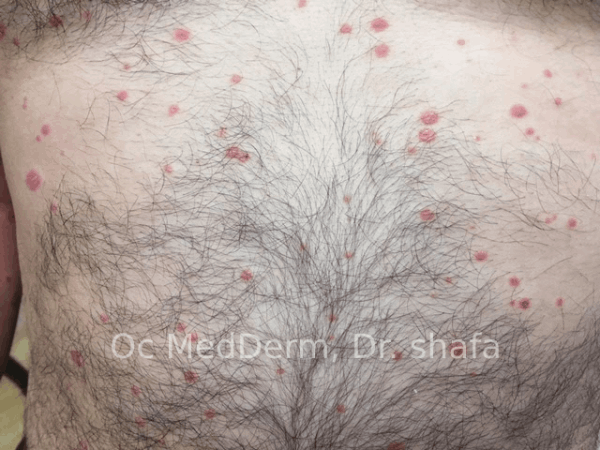
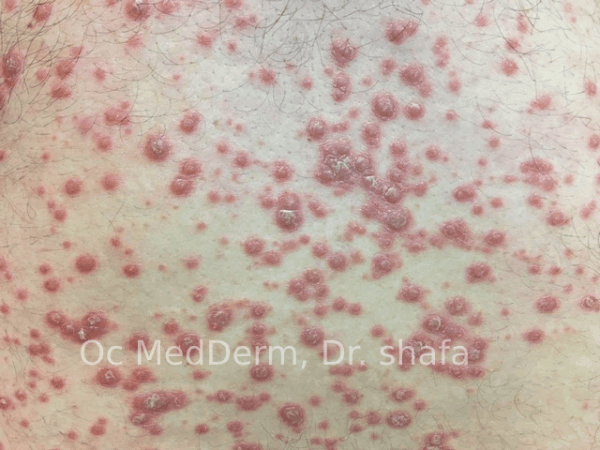
Psoriasis is a chronic immune-mediated skin condition that causes the skin to produce new cells much faster than normal. Instead of developing over weeks, skin cells form within days and build up on the surface, creating thick, inflamed patches called plaques.
At OC MedDerm Dermatology in Irvine, CA, psoriasis is diagnosed and treated by Dr. Parvin Shafa, an experienced dermatologist specializing in medical and immune-based skin conditions.
Psoriasis is often genetic. Many patients have one or more family members with psoriasis, even if their own symptoms appear later in life.
According to the American Academy of Dermatology, over 7.5 million people in the U.S. are affected by psoriasis. Patients of all ages, skin tones, and backgrounds can develop this condition.
No. Psoriasis is not contagious.
You cannot catch psoriasis through touch, close contact, or shared objects. The condition only develops in people who carry the genetic predisposition.
A person’s genetics and immune system are understood to be important factors of what causes psoriasis. Although, not everyone who has inherited the genes for psoriasis will have active flare-ups unless he or she is exposed to a “trigger.”
priasis can begin, be triggered for the first time following these types of events:
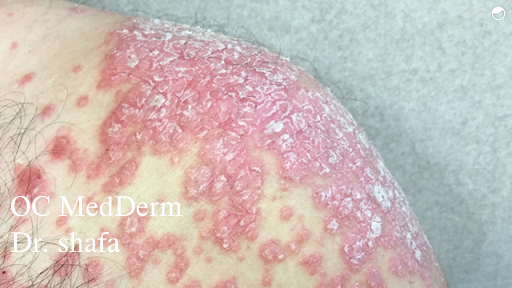
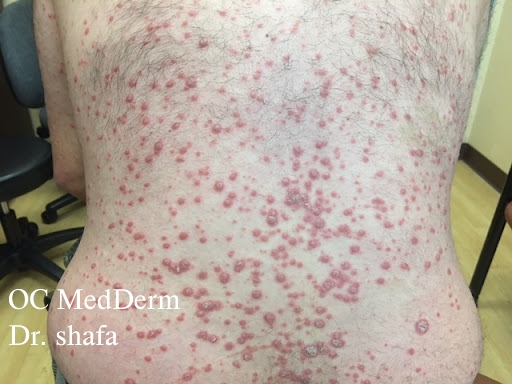
Psoriasis is usually diagnosed clinically by Dr. Shafa during an in-office skin examination. She will review:
If needed, a small skin biopsy may be performed to confirm the diagnosis under microscopic evaluation.
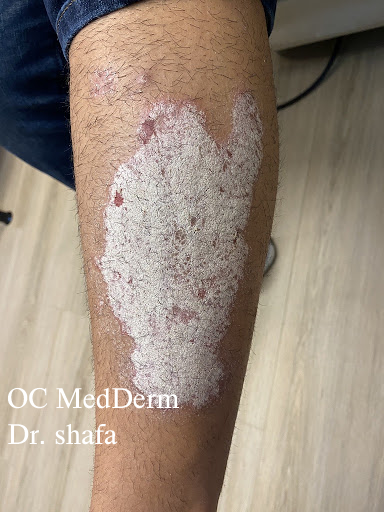
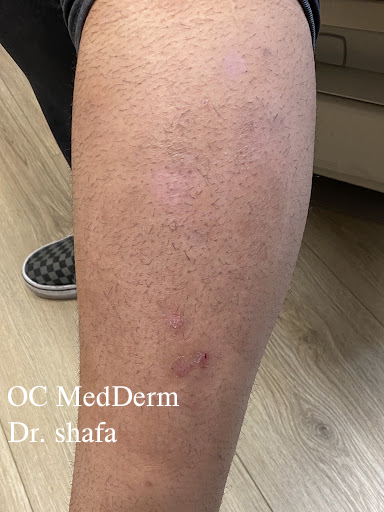
After diagnosis, Dr. Shafa will create a customized treatment plan based on psoriasis type, severity, skin tone, and lifestyle.
Common Treatment Options Include:
Most patients achieve excellent control of symptoms with proper dermatologic care.
If you notice red, scaly patches, persistent itching, or recurring flare-ups, early treatment is essential.
OC MedDerm Dermatology – Irvine, Orange County, CA
Call (949) 551-1113 for same-day appointments or schedule your consultation today.
Other Treatments
Actinic Keratosis, a Pre-Skin Cancer! | Dermatitis | Eczema | Excessive Sweating | Itching | Keratosis Pilaris | Rash | Rosacea | Skin Discoloration | Vasculitis
Book a consultation at OC Medderm | Irvineskin Today for Medical, Surgical, and Cosmetic Dermatology in Irvine & Orange County, CA.
We are experts in Acne, Pinch blepharoplasty, Ear lobe repair, Xanthelasma repair, Syringomas removal, mole removal, Keloid removal, Body and face piecing or piercing repair or removal, lump and bumps removal, Acne scar removal, Spider vein treatment, fungal infection, Co2 resurfacing, Warts and more.
You can schedule an appointment or call us now for all the dermatology treatments. We are located at 113 Waterworks Way 100, Irvine, Orange County CA, We Are Dedicated to Providing the Best & Transparent Dermatology Care for your skin.
Call us when you want!